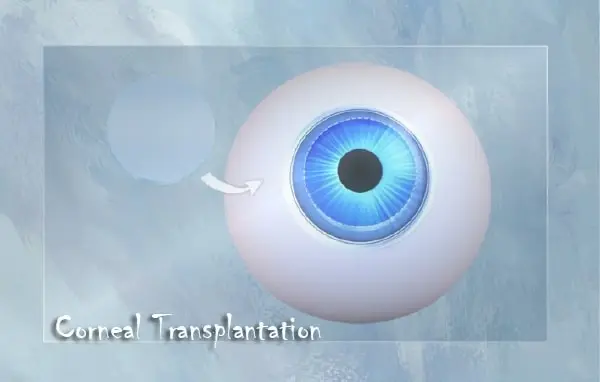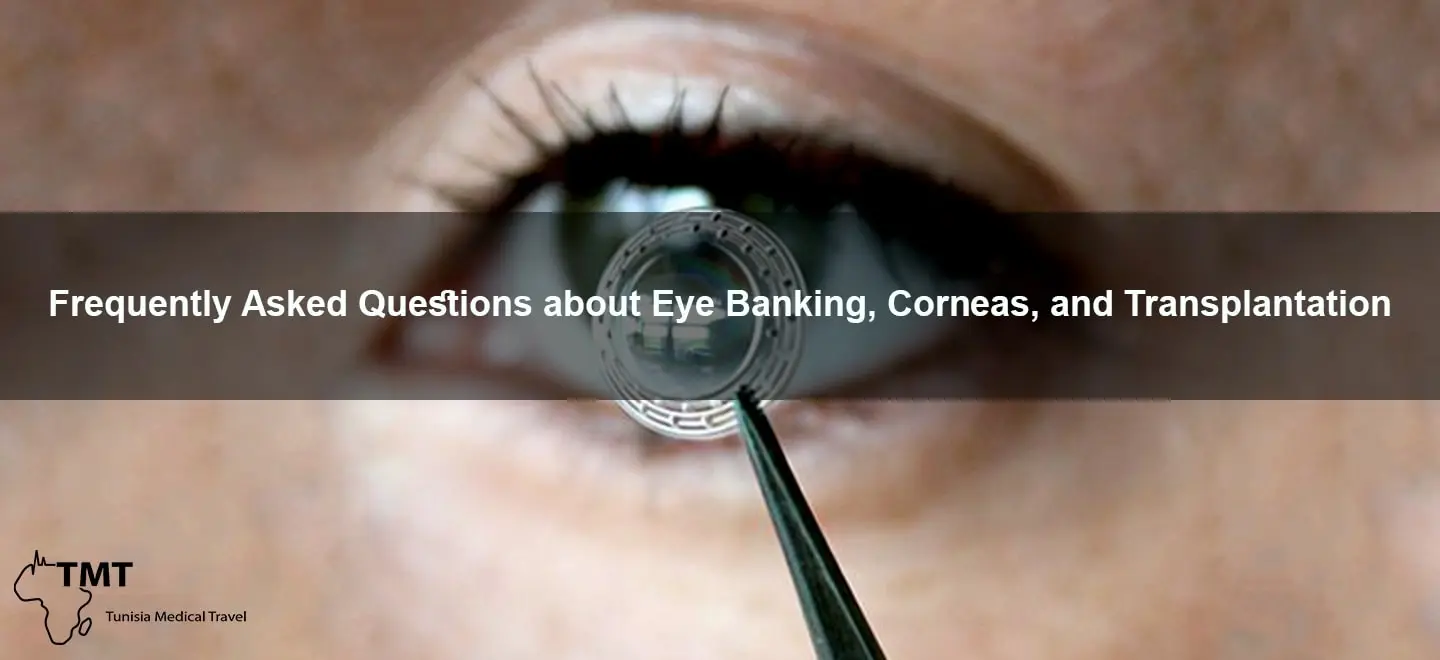Frequently Asked Questions about Eye Banking, Corneas, and Transplantation
Frequently Asked Questions about Eye Banking, Corneas, and Transplantation
In this article, we will delve into the intricacies of these vital aspects of ophthalmology, addressing common questions and shedding light on important topics surrounding eye donation, corneal health, and transplantation procedures. The human eye is a remarkable organ, allowing us to perceive the world around us in vivid detail. However, like any other part of the body, the eye is susceptible to injury, disease, and aging. When the cornea—the clear, protective outer layer of the eye—becomes damaged or diseased, it can result in vision impairment or even blindness. Fortunately, advancements in medical science have made it possible to restore vision in individuals with corneal blindness through corneal transplantation. This life-changing procedure involves replacing the damaged cornea with a healthy donor cornea, enabling recipients to regain clarity of vision and improve their quality of life.
About Corneas and Common Diseases
What is the cornea?
The cornea is the clear, dome-shaped surface that covers the front of the eye. It acts as the eye’s outermost lens, responsible for refracting light and focusing it onto the retina at the back of the eye. Composed of specialized cells and proteins, the cornea plays a vital role in vision by providing approximately two-thirds of the eye’s focusing power. This transparent structure also serves as a protective barrier, shielding the eye from dust, debris, and other harmful particles. Additionally, the cornea contains nerve endings that contribute to the eye’s sensitivity and ability to detect touch.
Given its critical functions, any damage or abnormalities in the cornea can significantly impair vision and lead to conditions such as corneal ulcers, infections, and corneal dystrophies. Corneal transplantation, a surgical procedure where a damaged cornea is replaced with a healthy one from a donor, is often necessary to restore vision in individuals with corneal diseases or injuries.In summary, the cornea is a remarkable and essential structure of the eye, responsible for clear vision and eye protection. Its intricate composition and functions underscore the importance of maintaining its health and seeking appropriate medical care when needed.
What is corneal blindness?
Corneal blindness is a condition where the cornea, the eye’s transparent front layer, becomes damaged or diseased, leading to significant vision impairment or complete loss of sight. This can occur due to various reasons, including infections like keratitis, injuries from trauma, or genetic conditions such as Fuchs’ dystrophy. In some cases, corneal blindness may result from complications related to other eye diseases or surgeries. When the cornea’s clarity is compromised, light cannot properly enter the eye, and vision becomes blurred or obstructed. Treatment for corneal blindness often involves a cornea transplant, where the damaged cornea is replaced with a healthy one from a donor. This procedure can restore vision and significantly improve the quality of life for those affected by this condition. However, access to corneal transplants depends on the availability of donated corneas, highlighting the importance of eye donation.

About Transplantation
Corneal transplantation, also known as keratoplasty, is a surgical procedure aimed at replacing a damaged or diseased cornea with a healthy one from a donor. It’s important to note that only the cornea is transplanted, not the entire eye.
Why should eyes be donated?
Eye donation is a critical act of generosity that can profoundly impact the lives of those suffering from corneal blindness. Donating your eyes can restore vision to individuals who have lost their sight due to diseases, injuries, or congenital conditions affecting the cornea. Donating your eyes is a profoundly impactful decision for several reasons. First and foremost, it restores sight, offering the invaluable gift of vision to someone and significantly enhancing their quality of life and independence. There’s a high demand for corneas, with many patients on waiting lists, hoping to regain their sight, making each donation crucial. The process itself is straightforward and does not interfere with traditional funeral practices. Additionally, it can provide comfort to the donor’s family, knowing that their loved one has made a meaningful contribution. Eyes that are not suitable for transplantation can be used for medical research, aiding scientists in developing new treatments and potential cures for various eye diseases. Ultimately, eye donation is a selfless act of altruism, allowing you to make a positive and lasting impact on someone’s life, even after your own has ended. By choosing to donate your eyes, you contribute to a brighter future for individuals facing the challenges of corneal blindness.
Who can be a donor?
Almost anyone can be an eye donor. Age, eye color, and vision quality do not usually disqualify someone from donating their eyes. Even individuals with poor eyesight or common medical conditions can often donate. However, certain criteria must be met. While most people can be donors, those with communicable diseases such as HIV or hepatitis may be disqualified to protect the recipient’s health. There is no strict upper age limit for eye donation; individuals of all ages, including the elderly, can donate their corneas. Although some medical conditions affecting the eye might impact donation eligibility, many do not. It is always best to check with an eye bank or a medical professional to determine eligibility.
Will the quality of medical treatment be affected if one is a known donor?
No, the quality of medical treatment will not be compromised if you are a known eye donor. Healthcare providers are bound by strict ethical and legal standards to ensure that all patients receive the best possible care, regardless of their donor status. Medical decisions and treatment protocols are solely focused on the patient’s health and well-being, and the fact that a patient is an eye donor does not influence the quality or type of medical care they receive. Ensuring equitable treatment for all patients is a cornerstone of medical ethics and practice.
Will the recipient be told who donated the corneas?
Typically, the identity of the cornea donor remains confidential. Eye banks and transplant organizations prioritize donor confidentiality and respect the privacy of both donors and recipients. While recipients may express a desire to know more about their donor as a way of expressing gratitude or curiosity, it is standard practice to maintain anonymity. However, some transplant programs may facilitate anonymous communication between the donor’s family and the recipient if both parties agree to it. This allows for the possibility of expressing gratitude while still respecting the privacy and wishes of all involved. Ultimately, the decision to disclose donor information rests with the transplant organization and is guided by ethical considerations and legal regulations.
By addressing these frequently asked questions about Corneas, and transplantation, individuals can gain a better understanding of the importance of eye donation and the life-changing impact it can have on those in need of sight restoration.

